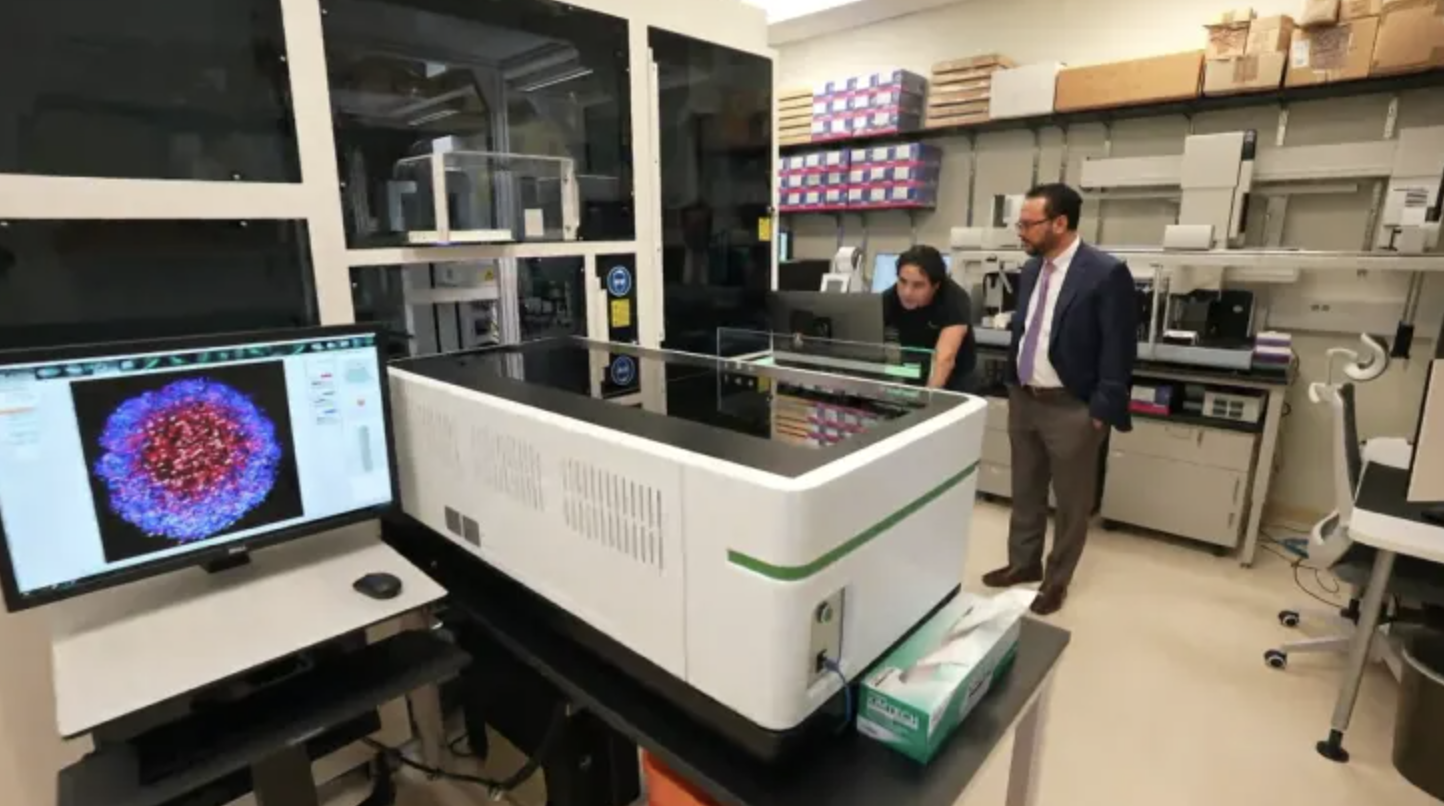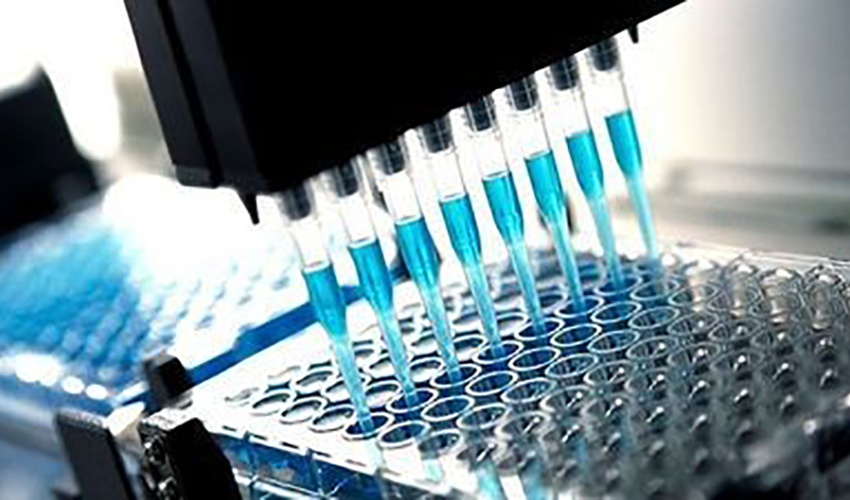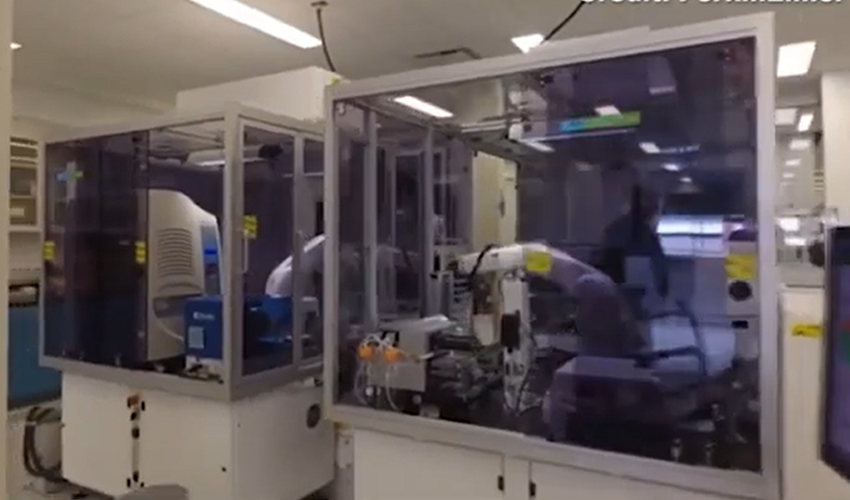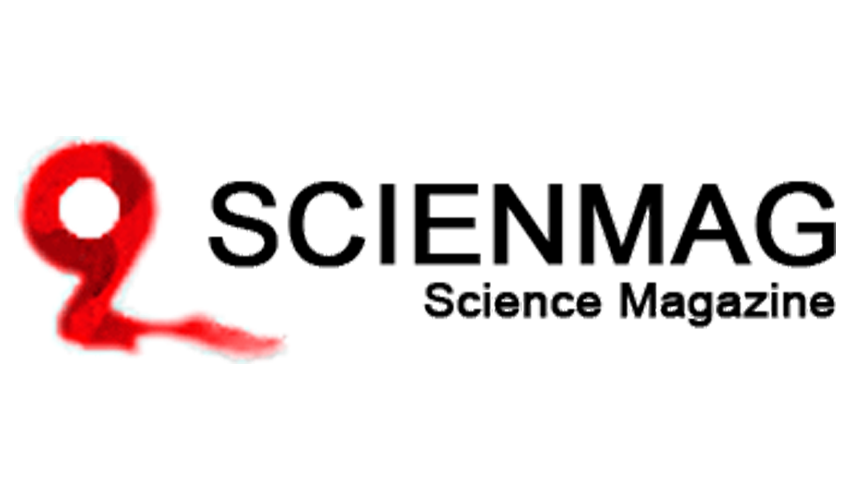News & Events
-

Game-Changing Donation Accelerates Cancer Research
May 10, 2025Daniel LaBarbera, PhD, is on the cusp of a breakthrough in cancer treatment. He can feel it. And he wouldn’t have been able to get here without the help of a private donor who saw his work and believed that his team could improve cancer treatments – and outcomes – worldwide.Full story -

Record levels of funding propel Denver-Boulder to the top of the life sciences marketOpens in a new window
Apr 8, 2024Aurora, Denver’s biggest suburb, is the epicenter of life sciences research: a 256-acre complex that’s home to the University of Colorado’s Anschutz Medical Campus, which receives $700 million in annual grant funding. The center helps shorten the timeline from drug discovery to treatment, aiding startups and existing companies to get breakthrough medications to patients faster.Opens in a new window Full story -

CU Anschutz getting new robotic deviceOpens in a new window
Nov 9, 2020New robotic instrumentation is expected to speed up the discovery of new pharmaceuticals and treatments. Through screening imaging cells, and patient cultures, it’s hoped that the new process will speed up treatments for cancer and Alzheimer’s disease.Opens in a new window Full story -

CU Anschutz Announces Unique Technology to Rapidly Screen New Drugs, Therapies
Oct 8, 2020The automated technology could cut the screening time for new drug therapies by half. That means therapies and pharmaceuticals could be ready for patients faster than ever before.Full story -

The ALSAM Foundation Funds Breakthrough Robotic Screening and Imaging
Oct 7, 2020This new screening and imaging technology will be applied to both small molecule and biologic development and will position the Anschutz Medical Campus for the next generation of translational discovery where speed and efficiency are essential.Full story -

New CU Anschutz technology could speed up drug development in the Mountain WestOpens in a new window
Oct 7, 2020Not only will university researchers be able to use the new screening and imaging equipment, but also the bioscience community and startups that are working with Anschutz and being born out of research happening there.Opens in a new window Full story -

CU Anschutz campus to get new technology that can cut screening time for new drug therapies in halfOpens in a new window
Oct 6, 2020The University of Colorado Anschutz Medical Campus in Aurora announced the addition of new technology that researchers say could cut the screening time for new drug therapies in half.Opens in a new window Full story -

CU Anschutz Announces Unique Technology To Rapidly Screen New Drugs, TherapiesOpens in a new window
Oct 6, 2020The University of Colorado Anschutz Medical Campus announced a new robotic screening and imaging technology today marking a major breakthrough in the detection and treatment of disease.Opens in a new window Full story -

A unique technology to rapidly screen new drugs, therapiesOpens in a new window
Oct 6, 2020The University of Colorado Anschutz Medical Campus announced a new robotic screening and imaging technology today marking a major breakthrough in the detection and treatment of disease.Opens in a new window Full story